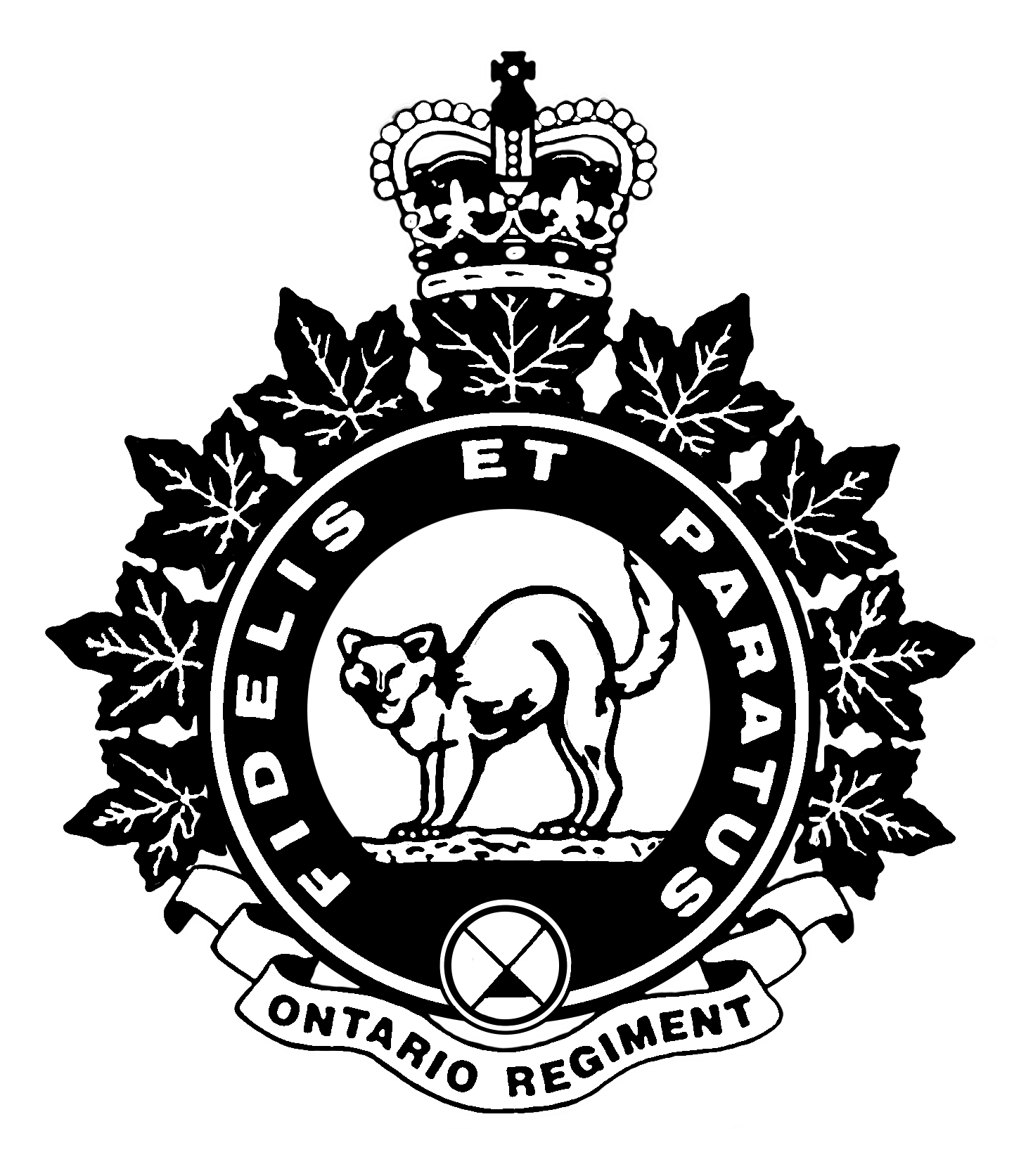The first few days of August were quiet for the Ontario Regiment, consisting of static time and some location moves meant to convince the Germans that the advance on Florence was imminent. The Ontarios next operation was to support elements of the 17 th Indian Infantry Brigade hunting for, and engaging, German positions along the south side of the Arno River beginning on 10 August.

advance to Florence.

KIA 10 August 1944
Lieutenant Herbert Poupore was killed on the first day of the operation when a mortar shell landed near him while he was out of his tank performing a reconnaissance with other officers. He was born on 18 December 1920 in Thorold, ON. His military career began when he signed up with the active service battalion of the Royal Regiment of Canada on 1 August 1940. He was a student and living in Toronto at the time. In June 1941 he transferred to the Ontario Regiment. Over the next 17 months he worked his way up to acting sergeant and was selected for officer training at Sandhurst in November 1942. Upon graduation he was commissioned as a lieutenant in July 1943 and rejoined the Ontario in June 1944.
The next several days were spent in a similar manner. Each day the Ontarios identified and engaged a number of targets and they also provided harassing fire on numerous occasions. No German tanks were encountered during this time. The Indian Brigade was relieved by the British 2nd Infantry Brigade on the 14th and the Ontarios took on the role of supporting the British.
The German commander in Florence contacted the Red Cross on 14 August to indicate his willingness to hand over his area of the city to the British forces. He was concerned for the safety of the residents as no food had entered the city in ten days. Negotiations took place and the Germans withdrew to the northern outskirts. On 17 August “A” Squadron was acting in support of the 1st Battalion, Loyal Regiment (North
Lancashire) and entered Florence. These Ontario Regiment tanks were the first Allied tanks to enter the city. More British troops followed and services were quickly restored.
Over the next few days “A” Squadron remained in Florence, supporting the 2nd Infantry Brigade. It was generally quiet for the Ontarios but on the 18th Sergeant Matthew Miller died of injuries received in a car accident Sergeant Matthew Miller was one of many Ontarios who came from Northern Ontario. He was born on 15 May 1919 in South Porcupine, ON. He was still living there when he joined the active service battalion of
the Algonquin Regiment on 28 June 1940. Miller was working as a driller in a gold mine for Preston East Dome Mines, Ltd prior to enlisting. He was taken on strength of the Ontario Regiment in March 1941. On 17 August 1944 he was a passenger in a military car traveling on a narrow road. As the car turned into a blind corner a military truck coming toward them drifted into the other lane and collided with the car. Sergeant Miller was badly injured and succumbed to his injuries the next day.

Died of Wounds 20 August 1944
Trooper Quast was wounded in the chest on 18 August and died of wounds on 20 August. Trooper Edgar Nelson Quast was born on 26 March 1943 in Sebringville, ON. He was living in nearby Mitchell and working as a contractor for the J.S. Lackie Company when he joined the active service force on 13 February 1943. Quast was taken on strength of the Ontario Regiment in May 1944.
Two soldiers from “C” Squadron were killed on 24 August by a German S-mine during a road move: Troopers Claringbold and Merson.

KIA 24 August 1944
Trooper Thomas Vernon Michael Claringbold was one of many members of the Regiment who were born in the United States. Clargbold’s case was somewhat different than the others. Although he was born in Detroit, MI on 13 August 1918, his family moved to the Windsor area in 1928. Claringbold was working as a general labourer at a metal finishing shop in Windsor when he joined the Essex Regiment on 27 May He was taken on strength of the Ontario Regiment in February 1941.
Trooper Joseph Merson’s life was unusual compared to his fellow Ontarios. He was born in Strzalkowice, Poland on 7 September 1903, making him much older than most of the other soldiers. His birth name was Jozef Smereka, but he adopted the name Joseph Merson after arriving in Canada. Additionally, he served in the Polish Army in 1920 and then underwent further training from 1924-26. It would appear that immigrated to Canada in the late 1920s or early 1930s. He joined the Ontario Regiment on 4 July 1940 with a large group of other recruits from Northern Ontario. Merson was working as machine drill operator for the Lake Shore Mining Company in Kirkland Lake, ON at the time.
The Ontario Regiment spent the last week of August supporting British infantry in the north-west section of Florence to clear out Germans that were reported to be still in the area. No enemy were encountered and the remainder of August was spent supporting patrols and acting in a counter-attack role.
The Ontarios were awarded the battle honour “Advance to Florence” for their efforts in late July and early August.
Rod Henderson
Rod Henderson is the Regimental Historian of the Ontario Regiment. He served as a Sergeant in the Regiment and is the author of “Fidelis Et Paratus: The History of The Ontario Regiment RCAC”.

